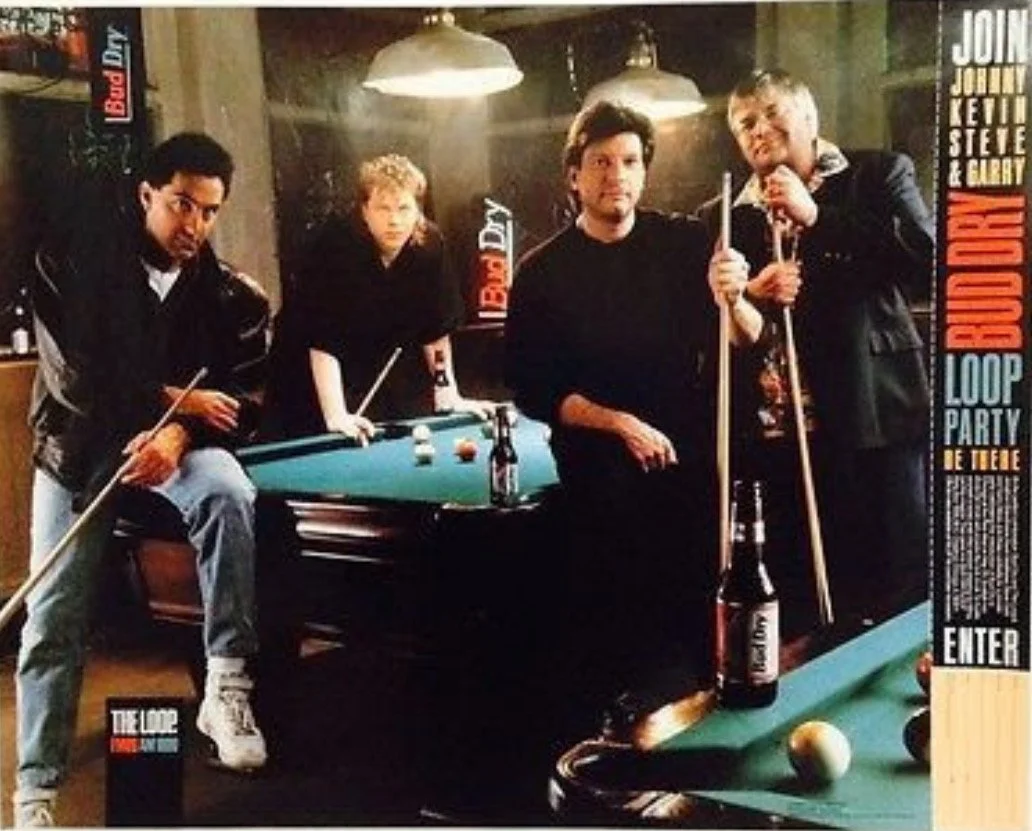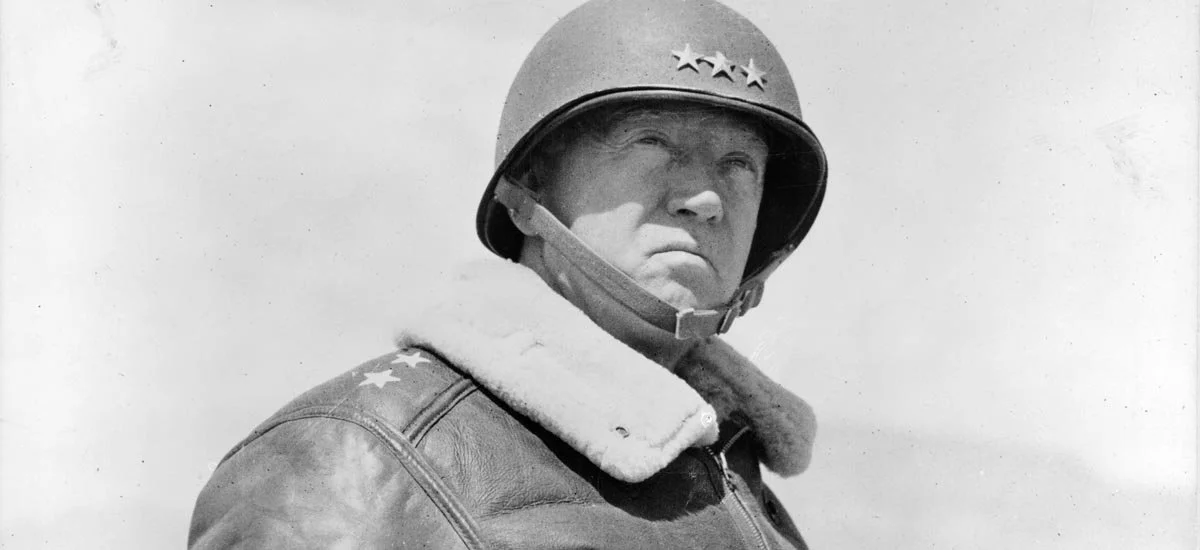Crazy in Chicago: A Review of Rick Kaempfer’s “The Loop Files”
Just a few minutes before midnight on the night of March 9, 2018, AC/DC’s iconic rock song “Highway to Hell” blared out of 4,000 watts of raw radio power atop Chicago’s John Hancock Center. On any other night, this would be nothing out of the ordinary for classic rock stations.
But this was no ordinary night. And this was no ordinary radio station.
And when the clock struck midnight and the last echoes of Bon Scott crooning that final lyric “I’m on the highway to hell……” faded through the ionosphere, WLUP The Loop 97.9 was no more. After 41 glorious years of rocking Chicago and literally becoming one of the most (in)famous radio stations in the entire country, The Loop echoed its last to make way for contemporary Christian music broadcasting.
And with a little help from AC/DC, letting the music talk in telling the new owners, Education Media Foundation (EMF), to go to hell was not only brilliantly devilish, it was typical WLUP rabble-rousing right to the end.
Reading Chicago media writer — and former WLUP show producer between 1987 and 1993 — Rick Kaempfer’s magnificent book “The Loop Files: An Oral History of the Most Outrageous Radio Station Ever” brought this Loyal Looper back to one of the happiest times of his life. The grueling decades-long wait for someone to finally tell the story of WLUP’s glory days is over. It was definitely worth it. And nobody but Kaempfer could have pulled this off as well as he did in this deeply engrossing book.
“The Loop Files: An Oral History of the Most Outrageous Radio Station Ever” is a trip down memory lane for Chicagoans nationwide lucky enough to have been a part of the Loop listener experience in the 1970s, 80s and 90s. It’s a 350-page bedtime story filled with a twisted cast of characters and behind-the-scenes fun and drama as told by those who were there, from day one in 1977 to its final sign-off in 2018. By 1999, The Loop had become a far different radio station from its heyday and Kaempfer smartly cuts things off around the time of Bonneville International’s acquisition of WLUP in 1997. But it’s the stories the on-air talent and behind the scenes production maestros tell here — and there are many stories! — of how this once little Chicago rock station became stuff of legend barely a decade later.
Culled from hundreds of hours of interviews, Kaempfer masterfully weaves together a fascinating history that begins in 1977 when General Manager Terry Chess and Program Director Jay Blackburn decided to change WSDM and its all jazz format to an all rock music format. But this transition was not going to be just any run-of-the-mill conversion. What Chess and Blackburn had in mind for the newly-christened WLUP “The Loop” was a different kind of rock station. Something brash and rebellious that would attract the target 18-34 age demographic and turn it into the coolest rock station in all of Chicago.
Steve Dahl and John Belushi circa 1979.
This type of anti-establishment radio unruliness called for recruiting some of the best on-air talent during the Loop’s early days when billboards starring the face of The Loop, Lorelei Shark (“Pow!”), and thousands of black t-shirts bearing the iconic Loop spray paint logo could be seen worn all over the city and Chicagoland area. There were disc jockeys at the beginning like Mitch Michaels, Sky Daniels and Dave Logan, and irreverent talk show hosts Steve Dahl and Garry Meier who had a growing fan base of impressionable Chicago rock ’n’ roll fans willing to do literally anything for the music they loved. For example…
On the night of July 12, 1979, that fan allegiance for Dahl and Meier — and the patience of team owners, ballplayers and millions of baseball fans across the country — was tested during the unforgettable Disco Demolition Night at Comiskey Park. Promoted extensively on Dahl’s WLUP morning show to bring fans out to the ballpark following low attendance that summer, 45,000 fans filled the stadium seats that sweltering summer night. A double-header, Dahl “blow’d up real good” a dumpster in center field filled with disco albums in between games. Moments later, 5,000 members of Dahl’s “Insane Coho Lips” anti-disco army unexpectedly stormed the field, destroying the grass and causing the White Sox to forfeit Game 2.
As destructive as it was not just to the field, some saw the Disco Demolition as a PR nightmare for the young radio station - that is until the incident started the crazy train that ultimately rolled WLUP into the ratings stratosphere. Throngs of new listeners were tuning into 97.9 each day and night to check out this unhinged radio station. And that train never stopped.
Under the helm of General Managers Jimmy de Castro and Larry Wert throughout the 1980s and 90s, The Loop could do no wrong and attracted plenty of A-list talent to its studio roster. On the music side, disc jocks like Bob Stroud, Patti Haze and Bobby Skafish brought a fresh and rockin’ perspective to the Loop FM. On the talk show side, the arrival of Jonathon Brandmeier in 1983 and Kevin Matthews in 1987 further propelled WLUP’s gradual trajectory towards dominating the Chicago radio market, which Steve and Garry began paving for them years before.
Johnny B., Kevin Matthews, Garry Meier and Steve Dahl Loop Budweiser poster - circa 1990.
After an initial break-in period, Brandmeier’s audience grew considerably throughout the 1980s. A madcap personality born for broadcasting, Johnny B.’s popularity — along with newsman/bluesman sidekick Buzz Kilman — was through the roof by the mid-80s on both of the Loop’s FM and AM stations, thanks in part to his desire to be outside and on-location with his audience in a variety of wacky on-air stunts. Honestly, can anyone forget (Brandmeier producer) Jimmy “Bud” Wiser getting pummeled in a barrel by a bull live on the air? I still have my ticket stubs from the half dozen Johnny and the Leisure Suits concerts I attended at Alpine Valley, Poplar Creek, the World Music Theatre and Joes on Weed Street between 1988 and 2007.
Jonathon Brandmeier just havin’ fun in the Loop Studios.
Hired to take over middays on AM1000, Kevin Matthews was a force to be reckoned with, a man of a million wacky on-air personalities — especially the irascible Jimmy Shorts — and limitless talent who kept his loyal fanbase, affectionately known as Kev Heads, laughing our butts off. Like Brandmeier, Kevin really dug meeting his listeners — I had the honor of meeting Kevin twice, once in 1992 at his live Rockford show and then at a celebrity golf outing in 1993.
It’s true that beginning in the mid-1980s The Loop invested heartily in transitioning from being solely a rock station to a more personality-driven format. But radio is a business and listeners have eclectic tastes, so you need to give them what they want. In the case of Loop fans, they wanted to be entertained and be able to listen to the classic rock they loved.
Kevin Matthews circa 1990.
With an amazing lineup of Brandmeier in the mornings on FM and AM dials, Matthews in the afternoon on AM1000, Steve Dahl and Garry Meier doing the work drive home, the “Godfather of Sports Talk” Chet Coppock in the evenings, and Danny Bonaduce overnights, there was no other place to be than in front of your radio. Sadly, this incredible lineup wasn’t meant to last as the tragic breakup of Dahl and Meier in 1993 shook WLUP — and its dedicated listeners — to their core.
I guess it can be said the great Dahl/Meier split was the crack in the foundation that marked the beginning of the end of The Loop’s radio dominance in Chicago. On-air personalities were given new time slots, Brandmeier was moved from mornings to the afternoon before parting ways with WLUP in 1997. Then Matthews was moved to mornings, then back to afternoons. Dahl broadcast his show solo for some time before soon finding a new on-air partner with Bruce Wolf.
As the years progressed, there was still a lot of fun to be had despite Brandmeier’s absence weighing heavy on Loyal Loopers. Brandmeier returned to WLUP in 2005 for a four-year stint before heading to WGN. Then Matthews’ departure from WLUP in 1998 to sign on with competitor WXCD further rocked the boat.
And it’s this time around 1998 Kaempfer brings “The Loop Files: An Oral History of the Most Outrageous Radio Station Ever” to a close.
Reading this oral history of my favorite radio station brought back all of those good times I had listening — and the memories of being late for work or classes in high school and in college whenever Johnny and Buzz or Kevin were up to something nutty. For we listeners, we couldn’t miss a single moment of what those lunatics were up to. Kaempfer knows because he was there in the studios for a lot of it. He flawlessly wrangles all of these voices of the past back to tell this incredible Loop story in such a fun and nostalgic way. So many times I’d see names in this book and remember them like I would an old friend from the past, then reading their recollections as they give us the inside scoop about their time working at “the most outrageous radio station ever.” This book brought all of that magic back for me, and then some.










